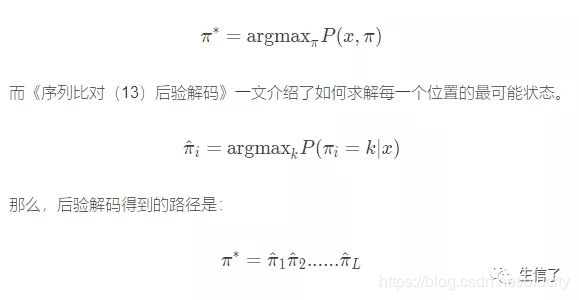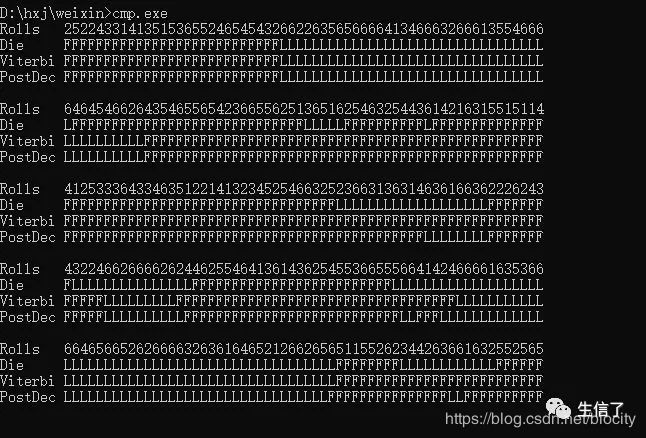序列比对(14)viterbi算法和后验解码的比较
本文比较了viterbi算法求解最可能路径以及后验解码这两种不同的解码方法。
前文《序列比对(十)viterbi算法求解最可能路径》介绍了用viterbi算法求解最可能路径:在符号序列已知而状态序列未知时,最可能路径是:

本文将这两种方法比较了以下,看它们各自求解的路径差异是否显著。分两种情况:
一、如前面几篇文章一样,从公平骰子转为作弊骰子的概率是0.05。
效果如下:(其中Rolls一行是符号序列,也就是骰子投出的结果;Die一行是真实的骰子状态;Viterbi一行是viterbi算法求解出的最可能路径;PostDec一行是后验解码得出的路径)

二、将公平骰子转为作弊骰子的概率改为0.01。并将投骰子的次数增加到1000次。《生物序列分析》一书中说,此种情况下,viterbi求解的路径没有出现过’L’(即作弊骰子)。但是,笔者实验的结果是两种方法都可能出现’L’。效果如下:
具体代码如下:(以概率0.01,投骰子次数1000的情形为例写的代码)
#include (公众号:生信了)